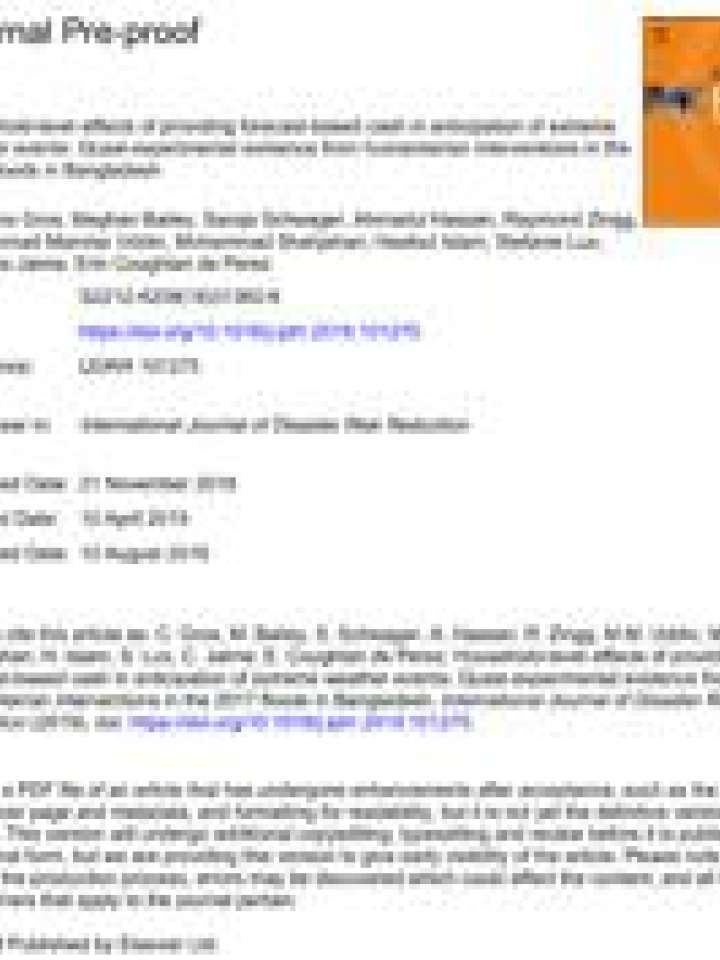Household-level effects of providing forecast-based cash in anticipation of extreme weather events: Quasi-experimental evidence from humanitarian interventions in the 2017 floods in Bangladesh
In 2017, Bangladesh experienced the worst floods in recent decades. Based on a forecast and pre-defined trigger level, a Red Cross Red Crescent project distributed an unconditional cash grant of BDT 5,000 (USD 60 equivalent) to 1,039 poor households in highly vulnerable, flood-prone communities in the Brahmaputra river basin before an early flood peak. Systems that can deliver forecast-based cash grants are a potential adaptation strategy to deal with changes in extreme events linked to climate change. This paper presents the results of a mixed-methods, quasi-experimental study, based on a post-disaster household survey. The research assesses the effectiveness of the forecast-based cash distribution in helping beneficiaries to take preparatory early actions and reduce the negative impacts of the flood on their health, well-being, assets and livelihoods. The assessment shows that the cash grants contributed to improving households’ access to food, a reduction in high-interest debt accrual of vulnerable households, and reduced psychosocial stress during and after the flood period, compared to a control group of similarly vulnerable and flood-affected communities that did not receive the forecast-based cash assistance. The intervention may also have prevented households from being forced to make destitution sales of valuable assets, as indicated by qualitative data collected in July, but we do not see these benefits sustained after a second flood peak in August 2017. There is a need for further research to assess the longer-term effects of forecast-based cash on the socio-economic development and well-being of the most vulnerable.
Explore further
